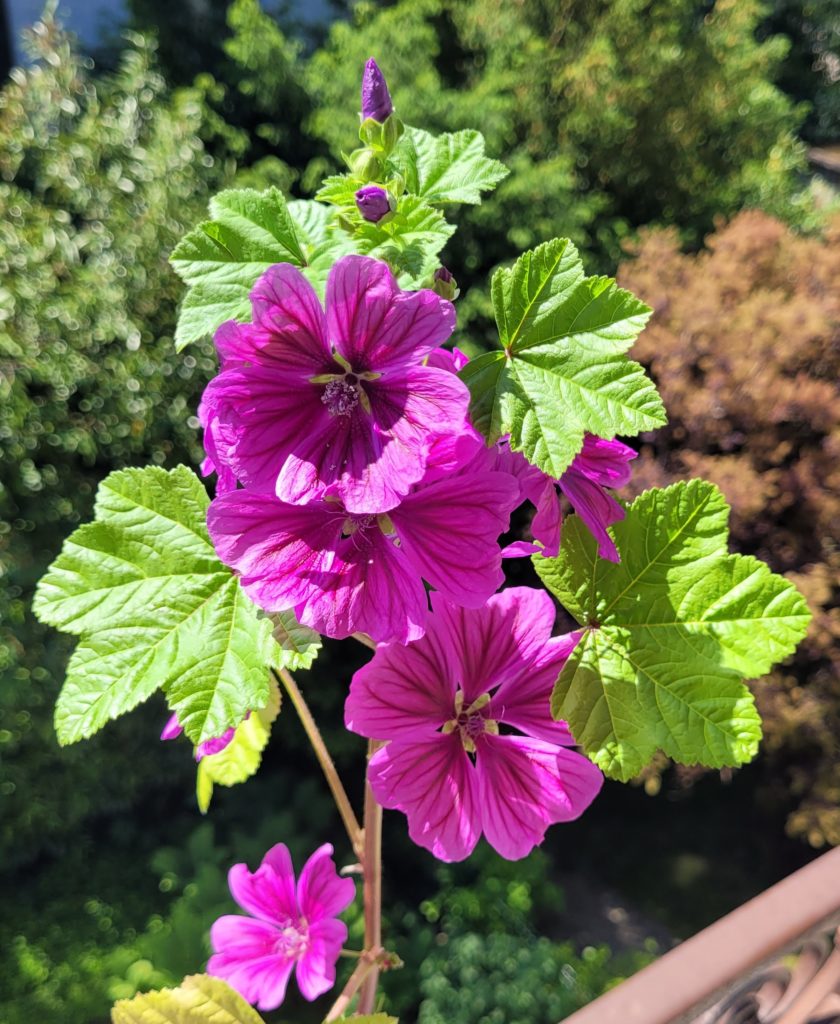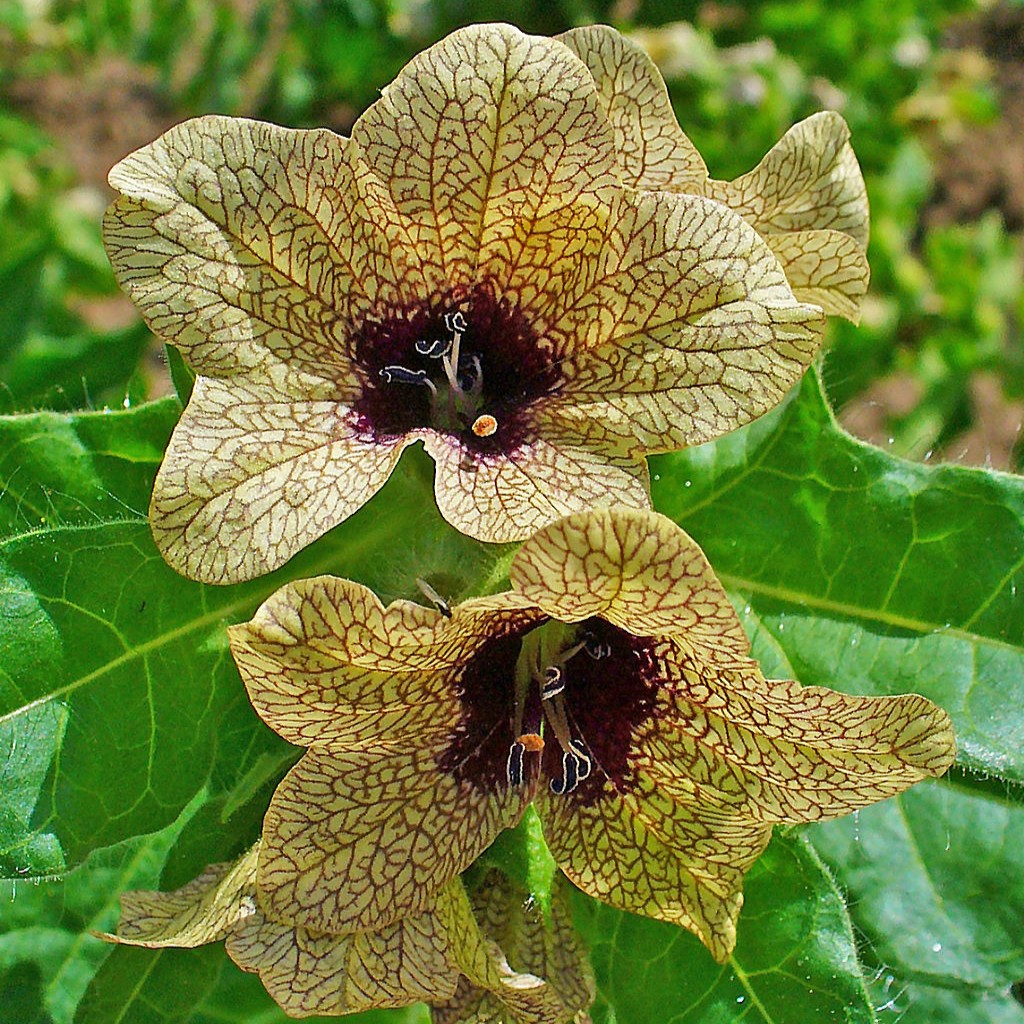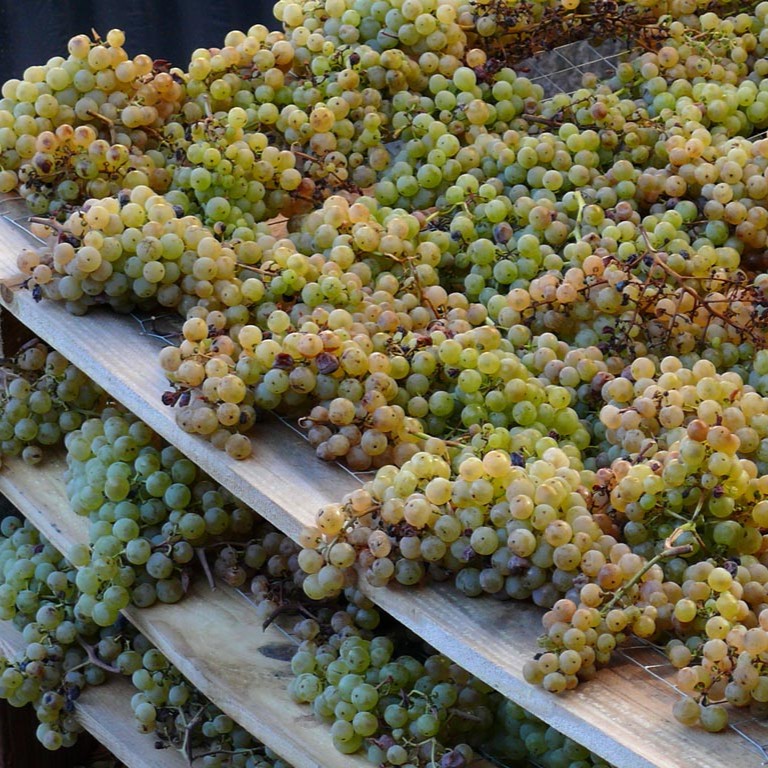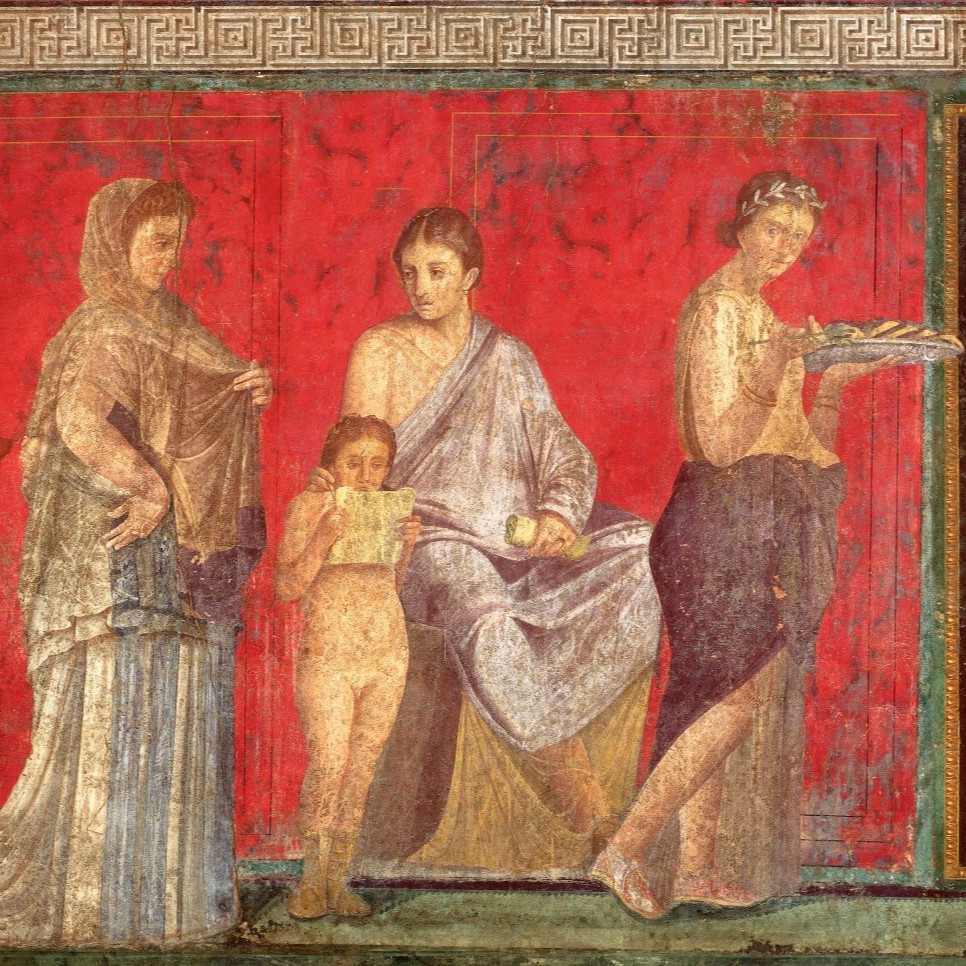
Translated from French with DeepL (please notify us of errors)
You have probably come across it without knowing or recognising it: the great mallow (malva sylvestris1) thrives in the countryside as well as in the city, on roadsides or embankments. It is noted for its beautiful flowers, ranging from pale pink to deep purple, with a corolla of five petals, each decorated with three darker stripes. These flowers were a delight in ancient cuisine. They were added to vinegar and garum-based sauces, with olive oil or sweet wine2 .
Since ancient times, it was not only the mallow flower that contributed to a frugal meal, but the whole plant, ribs and leaves3 . It was cultivated in the gardens of Roman houses and Apicius mentions it in a handful of recipes4 : from patinam ex lacte to tisanam barricam or other barley cream, not forgetting peas or beans Vitellianam and Porcellum hortulanum. Mallow is also used in two strange recipes, which seem to bring together everything one could get hold of (et cetera quae in praesenti habere poteris, says Apicius): fruit and vegetables of all kinds, snails, gizzards, quenelles and sausages, aromatic herbs, oil, wine, vinegar, garum, all of which are combined with eggs. This is the “reversed appetizer” (gustum versatile) and the “flowing caccabina” (caccabinam fusilem), which we hope is better than its name suggests…
Useful in cooking, mallow also has other virtues. Its laxative properties were praised by Latin authors, including Horace, Martial and Celsus5 . In one of his Letters to Friends, Cicero admits to having been trapped by the plant. Deprived of meat and fish at a meal where a sumptuary law applied, he abused dishes seasoned with our flower. The result: ten days of violent colic6 .
However, if taken in reasonable quantities, mallow has nothing but good qualities, which led to ite being renamed omnimorbia in Italy in the 16th century, i.e. “[remedy for] all ills”. The plant has an active principle, mucilage, which makes it anti-inflammatory. It is used to soothe coughs and sore throats as well as external inflammations of the skin or mucous membranes. It is likely that its Latin name -malva- bears the trace of the thousand-year-old knowledge of its curative virtues: it would go back to the ancient Greek μαλάχη (malákhē) which means soft or soften.
1 National Data and Information Centre for the Flora of Switzerland: https://www.infoflora.ch/fr/flore/malva-sylvestris.html
2 Apicius, De re coquinaria, III, 8 Malvas, 1 (86): Malvas minores +degrano+ ex liquamine, oleo, aceto. malvas maiores in oenogaro, piper, liquamine, caroeno vel passo
3 Hesiod, a Greek poet who is thought to have lived in the late 8th or early 7th century BC, mentions the mallow in Works and Days (Hes. Erga. 41).
4 Apicius, De re coquinaria, IV.2.13 (140) patinam ex lacte; IV.4.2 (174) tisanam barricam; IV.5.1 (175) gustum versatile; V.3.9 (194) Pisam sive fabam Vitellianam; V.5.2 (202) aliter tisanam; VIII.7.14 (380) porcellum hortulanum; Brevis ciborum II,1 (ext.2) caccabinam fusilem
5 Hor. Od 1.31.16 & Epod. 2.58; Mart. 3.89.1 & 10.48.7; Celse 2.20.1.
6 Cic. Fam 7.26.2:
Ac tamen ne mirere unde hoc acciderit quo modove commiserim, lex sumptuaria quae videtur λιτότητα attulisse ea mihi fraudi fuit. Nam dum volunt isti lauti terra nata, quae lege excepta sunt, in honorem adducere, fungos, helvellas, herbas omnis ita condiunt ut nihil possit esse suavius. In eas cum incidissem in cena augurali apud Lentulum, tanta me διάρροια adripuit ut hodie primum videatur coepisse consistere. Ita ego, qui me ostreis et murenis facile abstinebam, a beta et a malva deceptus sum.
“It is the sumptuary law, this law of frugality, which made me fall into a trap. You know that one of its articles makes an exception for the fruits of the earth. Well, our gourmets have imagined how to give these fruits a place of honour, and they have invented seasonings for mushrooms, for small cabbages, for all vegetables in general, which make them more delicious. I came across one of these dishes at the augural meal at Lentulus’; and the diarrhoea took hold of me so well that I am only now beginning to hope for an end to it. You see, I, who cost so little to abstain from oysters and moray eels, have been pinched like a fool for cardoons and mallows!
Other articles in English from the Nunc est bibendum blog








